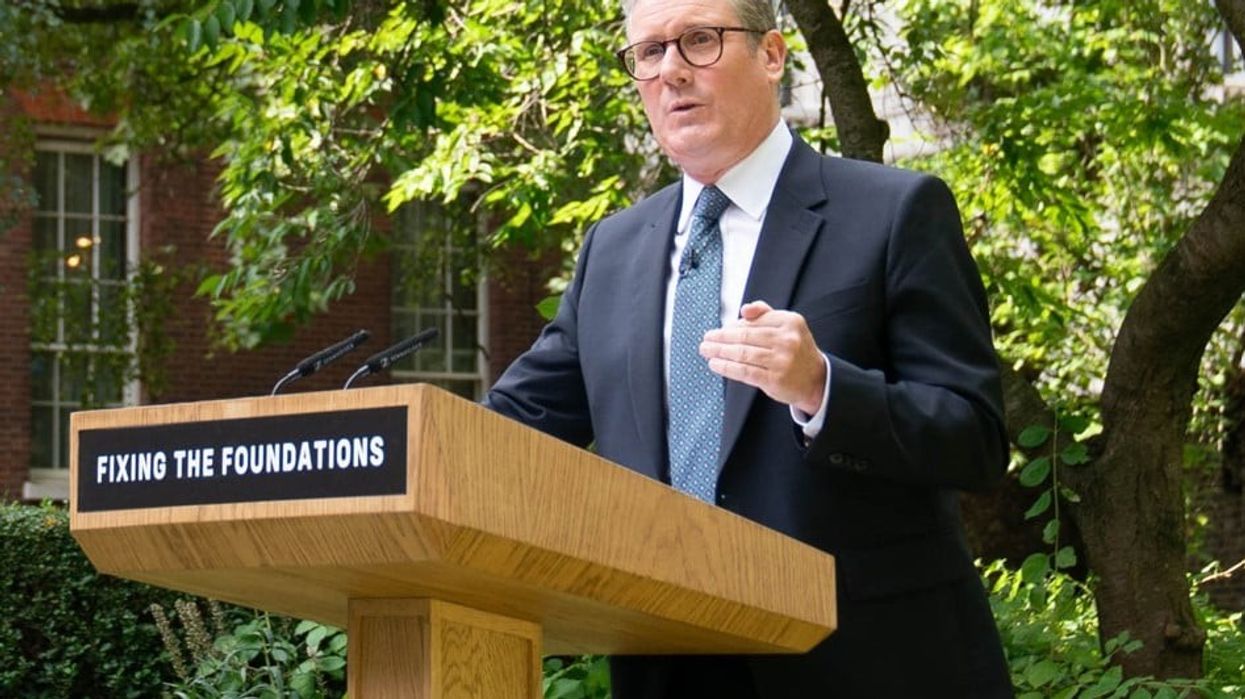KEIR Starmer announced on Tuesday that he would need to make unpopular decisions, including the possibility of taxing the wealthy and implementing spending cuts, as part of his efforts to address Britain’s various challenges. He attributed these issues to what he described as Conservative mismanagement.
Speaking in the rose garden of his Downing Street office, where Covid-related parties took place under a previous Conservative government, Starmer pledged to end politics as usual. He warned voters that Britain’s problems would worsen before they improved.
Starmer, who was elected in a landslide victory in July, has committed to rebuilding British society. He pointed to this month’s anti-migrant riots as a sign of deep divisions, which he said were fuelled by the Conservatives’ focus on populism.
He also claimed that the previous government left him with a £22 billion deficit, which he said was unexpected and has led to difficult decisions, such as limiting fuel payments to the elderly.
The opposition Conservative Party has accused Starmer’s Labour Party of exaggerating the fiscal situation to justify tax hikes, after campaigning on a promise not to raise certain taxes on working people.
Starmer stated that while he plans to keep that promise, the short term will involve "unpopular decisions" for the long-term benefit.
"There is a budget coming in October, and it’s going to be painful. We have no other choice ... Those with the broader shoulders should bear the heavier burden," Starmer said during a speech to voters, referring to a fiscal statement due on 30 October.
"We have inherited not just an economic black hole but a societal one as well. That’s why we have to take action and do things differently. Part of that is being honest with people about the tough choices we face," he said.
"Frankly, things will get worse before they get better," he told the audience, which included apprentices, teachers, nurses, small business owners, and firefighters.
The rose garden last gained attention during former prime minister Boris Johnson’s tenure when it was used for parties during the Covid lockdowns—events that Starmer said damaged public trust in politicians.
Kemi Badenoch, a Conservative leadership contender and the party’s policy chief for housing and communities, described Starmer’s speech as based on a "dishonest analysis."
"The truth is that Keir Starmer is managing voters’ expectations for a decade of decline," she said in a statement.
Prison places
Starmer, a former director of public prosecutions, expressed disbelief that as prime minister, he had to consider the availability of prison places to manage those involved in the riots targeting Muslims and migrants.
"Not having enough prison places is about as fundamental a failure as you can get. And those people throwing rocks, torching cars, making threats—they didn’t just know the system was broken, they were betting on it, gaming it," he said.
Starmer criticised the former Conservative government’s failure to address problems and its focus on populism, which he said had deepened societal divisions that would take time to heal.
He inherited an economy with sluggish growth, which is now only beginning to show signs of improvement. Public sector net debt is at its highest since the early 1960s, and the tax burden is expected to reach a near-80-year high.
Chancellor Rachel Reeves has indicated that the projected public finance overspend will necessitate cutting billions of pounds in spending.
"Those who made the mess should have to do their bit to clean it up," Starmer said, referring to new powers given to the water regulator to impose fines on companies responsible for sewage pollution.
"But just as when I responded to the riots, I’ll have to turn to the country and make big asks of you as well, to accept short term pain for long term good, difficult trade-offs, but the genuine solution," he added.
(With inputs from Reuters)




